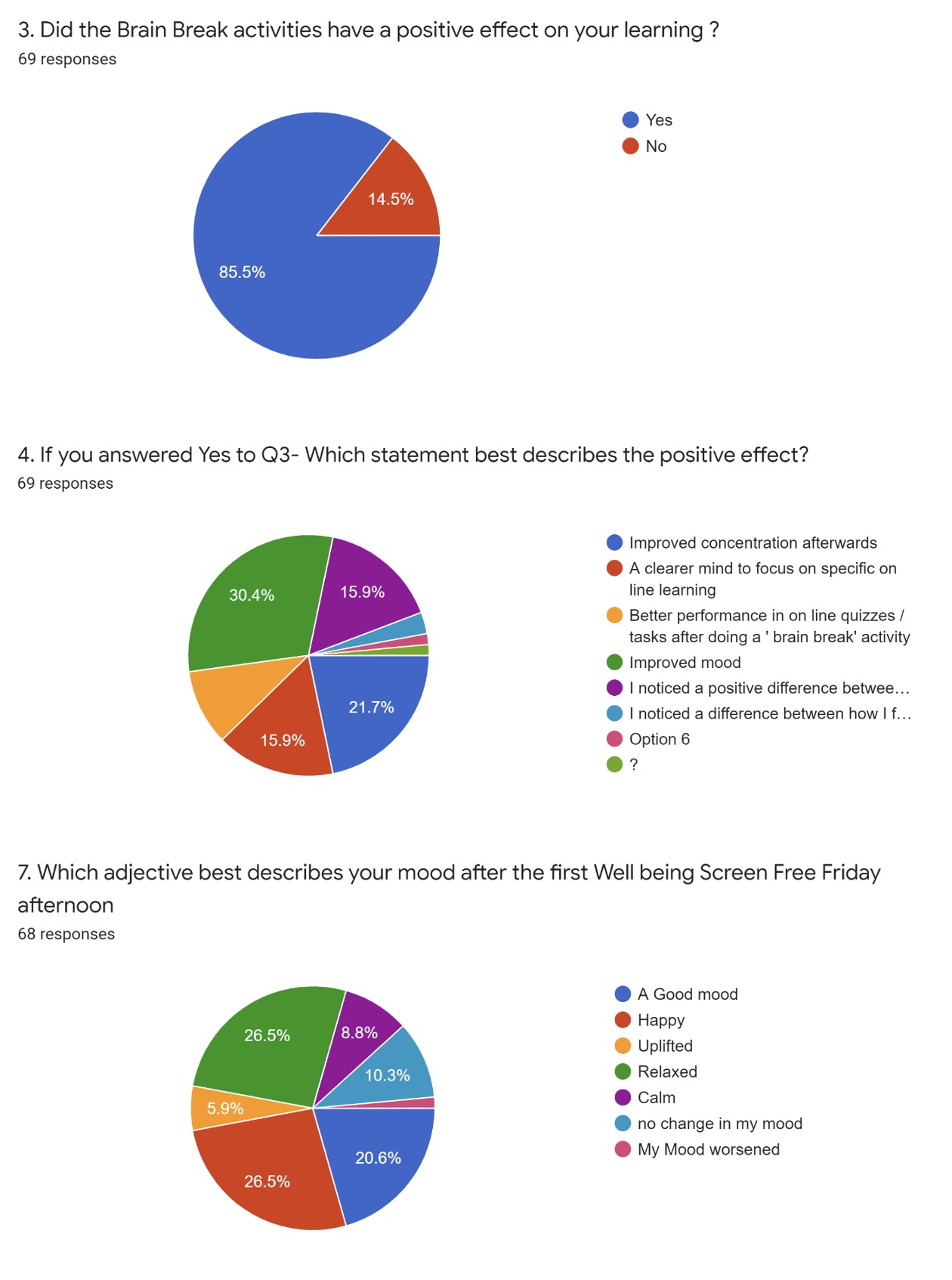
March 2021 Edition

By Sarah Kurth
Share
Give me a (Brain) Break!
I am in little doubt that many of us have heard of brain breaks in one form or another but perhaps less about the scientific processes and positive impact that these simple and short activities can have on cognitive functions, focus, morale, and classroom relationships.
A brain break activity is specifically designed to allow students to take a pause, move away physically and mentally from their current task, and complete a different style of activity for a short period of time. When skilfully implemented brain break activities cause a deliberate cognitive shift to take place, yielding a wealth of positive learning benefits. Brain breaks can be interleaved into the face-to-face learning environment and arguably perhaps with a greater impact, into remote online learning provision. Successful and popular brain break activities often include movement, humour and opportunities to interact and strengthen relationships with teachers and classroom peers. (Please below for practical examples)
Furthermore, scientific research over the last two decades has highlighted the significant positive benefits of brain break activities on memory retention, motivation, and long-term retention of new learning. The neuroscience behind these short activities proves that a planned change and style of task allows students to pause, rest, and revitalise key pathways in the brain. Moreover, specific types of brain breaks have proven to boost students’ mood and resilience. This change in state and mood is a pleasant side effect of the process of replenishing worked and stressed neurotransmitters in the brain and facilitated by a ‘brain break’. Neurotransmitters are essential to maintain calm, focus and memory retention.
As an MFL teacher, I often draw upon the work of Gian Franco Conti for the most effective ways to reduce cognitive mental load and achieve optimum memory retention for all students in MFL lessons. Conti often talks about ‘cognitive fatigue’ and how research points to the impact on learning during key times in the school day and how specifically later in the school day can affect students’ levels of engagement, retention and focus due to mental fatigue. Sierversten et. al. 2016, for instance found that for every hour later in the day test scores reduced by 0.9%. However, they also found that short regular breaks in learning improves average test scores.
At Avanti Fields School, we recognised the common side effects of working and learning in front of a screen for sustained periods and the consequent negative impact on performance both academically and emotionally, particularly at this time. As a school, we devised a range of strategies to alleviate the side effects of fatigue and cognitive overload in our whole school community. Our overall goal was to reduce the negative side effects whilst increasing levels of engagement, morale and motivation. We achieved this goal by firstly introducing a wellbeing screen free, activity afternoon where students completed tasks independently away from their screens and secondly by introducing a pilot group of students to trial brain breaks during subject Google Meets and independently as required. (The institute of Positive Education and their PEEC curriculum designed all brain break activities implemented). As you can see from the data below and the student testimonials, the results of our strategy and pilot scheme were extremely positive across all year groups.
References
Institute of Positive Education
Gian Franco Conti – The language teacher toolkit
Judy Willis – Edutopia.org
Student testimonials
‘In regard to the Brain Break activities, I would undoubtedly recommend these as a great way to take a short but effective break, which gives your mind a chance to recuperate during this time of online learning ‘I think it’s a positive way to stay healthy both mentally and physically’. Tanisha (Year 9)
‘The Brain Breaks helped a lot yesterday because I tried a few and they helped me concentrate a bit better and do my homework quicker than I usually do so thank you so much Mrs’. Vibhish (Year 7)
‘I personally enjoyed the activities as it calmed my brain from all the work I am doing. The brain activities did make a positive difference, and this was helpful as it can improve our blood flow to the brain and lowering levels of stress hormones’. Jiya (Year 8)
Pilot survey results

